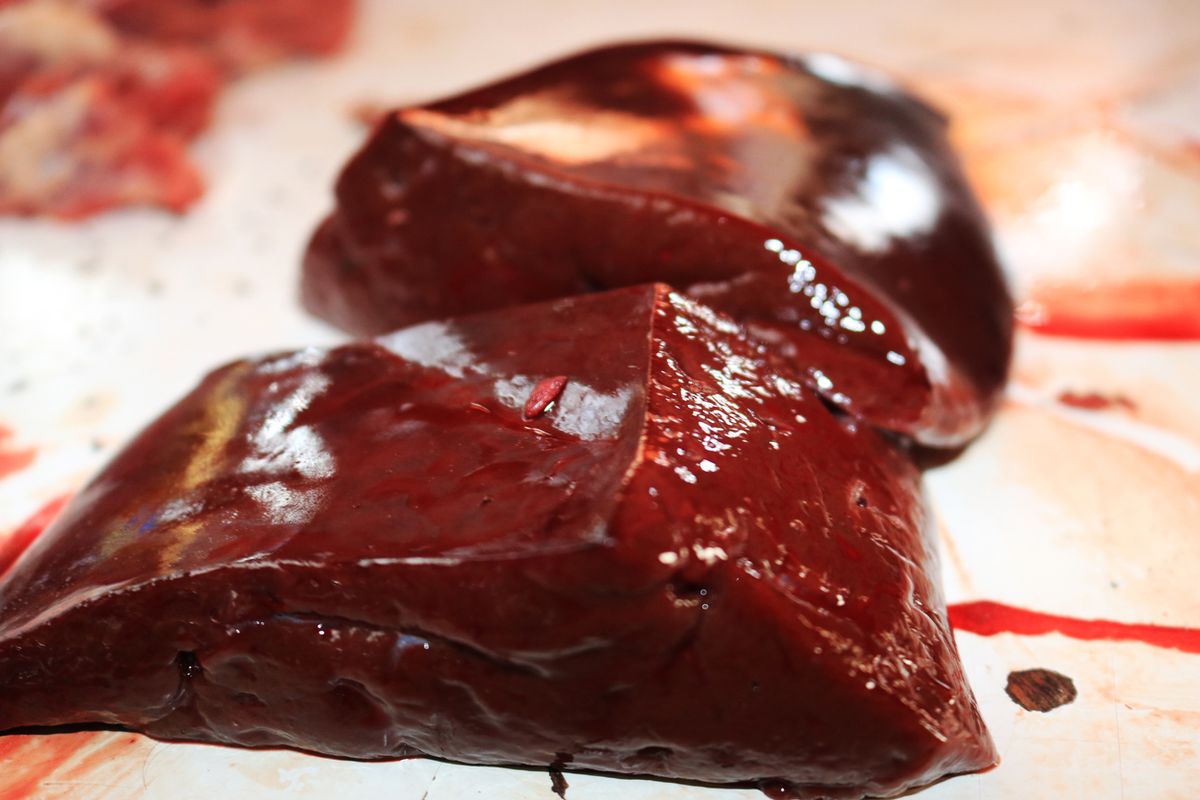Absolute Prohibition of Consumption 'Baluta'
Based on data as reported on the cnnindonesia.com site, it is stated that there are 5 types of food made from animal blood. The five types of processed animal blood include: 1) Blood tofu; Food made from animal blood such as chicken, cow or pig blood is a processed food that is believed by the Chinese to be beneficial for health, 2) Blodplattar; In Sweden and Finland, this processed food is made from pig blood mixed with flour, molasses and a number of spices that are stirred together. How to make it is the same as pancakes in general, 3) Thai Boat Noodles; This processed food known as Thai Boat Noodles is made from a mixture of cow and pig blood. How to make it, blood is added to the broth to make it thicker and thicker. When the meat is ground, blood is added to make the result denser, 4. Czarnina; This food is a noodle soup that is quite a favorite in Poland. This soup is made by draining duck blood and using gizzards, feet, bones, liver, heart and neck for the broth. Blood is mixed into the broth to give flavor and strengthen the color, and 5) Blood rice; This food comes from India. In India, this blood rice is known as Jadoh. This rice dish is similar to biryani rice but this dish uses chicken or pig blood to enhance the flavor. (Cnnindonesia.com, accessed 05/24/2025).
Meanwhile, based on other sources, it is stated that in Taiwan there is also a food made from pig's blood, called blood cake or black cake. This pudding-shaped food is served by being skewered and made into street snacks in Taiwan. Likewise in Korea, there is also a food made from a mixture of pig's blood known as sundae. In Italy, there is a pudding made from a mixture of sugar, chocolate, milk, pine nuts, raisins and pig's blood called Sanguinaccio Doice, and in France there is a food made from flour and using chicken blood as a thickener for the sauce called Coq Au Vin. (lifestyle.sindonews.com accessed 05/24/2025).
In Indonesia itself, there are also several processed foods that use blood as the main ingredient or additional ingredient in food such as typical Dayak food in Kalimantan. Meanwhile, in North Sumatra, it is known as Saksang babi, which is a processed food made from pork that is cut into pieces then mixed with pig's blood and uses various spices and herbs. Apart from Kalimantan and North Sumatra, Bali is one of the areas in Indonesia that uses the most blood as a processed food, including; 1) Urutan (oret) is a typical Balinese food made from a mixture of pig's blood. This food is usually called pork sausage. 2) Fried Pig Blood, this culinary is made from seasoned pig's blood. How to make it, first the blood is frozen to form clots, then fried until cooked, and 3) Red Lawar (Lawar Getih); In Bali there are two types of lawar, namely white lawar and red lawar. Now this red lawar is made from a mixture of pig's blood. (https://food.detik.com accessed 05/24/2025).
In other parts of Indonesia, such as South Sulawesi and West Sulawesi, there are also foods made from blood. Although they are not as popular as blood-based foods from other countries and regions in Indonesia, their presence has drawn considerable attention. In contrast to blood-based dishes from other countries or areas—often made by non-Muslims in regions where Islam and its followers are a minority and where the food is not intended for the general public—the case in Sulawesi is more concerning.
In Sulawesi, although these foods are not produced openly or on a large scale, it is quite alarming that they are sometimes prepared and consumed by individuals who are, in fact, Muslims. Even though these individuals may not be devout Muslims, it remains a concerning matter.
The practice of preparing food made from blood, particularly cow’s blood, usually becomes more common during Eid al-Adha when the blood of sacrificial animals is abundant, or during wedding celebrations.
The blood from the slaughtered animal is first collected in various containers such as basins, buckets, or others. This collected blood is then processed by cooking. In South Sulawesi, especially in districts such as Gowa, Jeneponto, Maros, and Bone, this blood-based food is called baluta’. It is made by cooking the freshly collected animal blood and allowing it to coagulate or solidify. It is often served like a pudding or jelly.
According to several sources, baluta’ is frequently served as a snack during drinking parties, particularly with traditional alcoholic beverages such as ballo kacci (Makassar) or tuak pai (Bugis). To some people, baluta’ is considered a delicacy.
Besides being made into baluta’, the collected blood is sometimes mixed into meat dishes. While in other places it might be mixed with pork, in South Sulawesi it is usually mixed with beef or horse meat. This latter preparation is especially concerning because, once cooked, it becomes very difficult to visually detect that blood has been mixed in.
The Islamic Ruling on Consuming Blood
In Islamic law, the consumption of blood (al-Daam) is strictly prohibited (haram). Scholars unanimously agree that any blood that flows from the human body—whether it comes out naturally (such as menstrual blood, postpartum bleeding, or nosebleeds), due to injury, or from slaughtered animals—is considered impure (najis) and forbidden to consume.(Erwandi Tarmizi, Harta Haram Muamalat Kontemporer, 2018).
This prohibition is explicitly, clearly, and repeatedly mentioned in the Holy Qur'an. The consumption of blood is forbidden alongside the prohibition of consuming carrion and pork. The ban on consuming blood is mentioned in several verses, including: Surah Al-Baqarah, verse 173, Surah Al-Ma’idah, verse 3, Surah Al-An’am, verse 145
All types of blood are prohibited by Allah, except for two, namely the liver and spleen, as mentioned in a hadith of the Prophet Muhammad (peace be upon him): "Two types of dead animals and two types of blood have been made lawful for us. The two dead animals are fish and locusts, and the two types of blood are the liver and the spleen." (Reported by Ahmad, Ibn Majah, Ad-Daruqutni, and At-Tirmidhi)
The prohibition of consuming blood in Islam is based on the fact that blood is considered impure (najis) and repulsive, as mentioned in Surah Al-An'am verse 145. Furthermore, scientific research has shown that blood contains many harmful bacteria that pose a danger to human health.
Because blood is classified as najis, the prohibition extends not only to its consumption but also to its sale and trade. This is supported by several hadiths of the Prophet Muhammad (peace be upon him).
"The Messenger of Allah (peace be upon him) forbade the price of blood."
(Narrated by Bukhari)
Another hadith states:
"Indeed, when Allah forbids the consumption of something, He also forbids the earnings from its sale."
(Narrated by Abu Dawud)
However, regarding very small amounts of blood that do not flow and are accidentally ingested—such as blood from the gums or fish blood—most scholars consider them excusable. Nevertheless, if blood is consumed deliberately and in large quantities, the original ruling applies: it is strictly haram (forbidden).
Based on these explanations, it can be concluded that preparing and consuming food made from blood—whether as a main ingredient or as an additive, such as the dish baluta’—is an act that is forbidden and prohibited in Islam.



